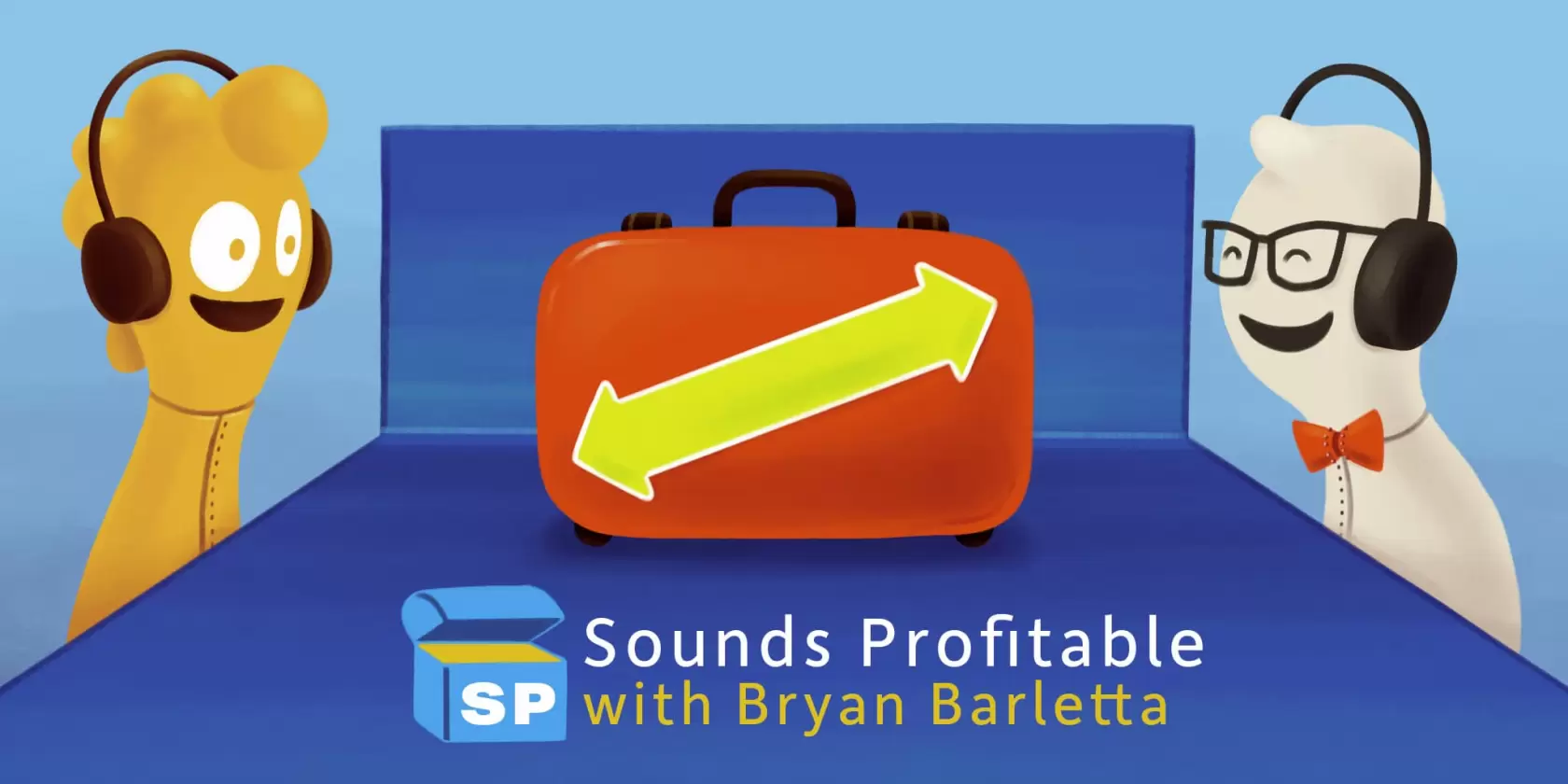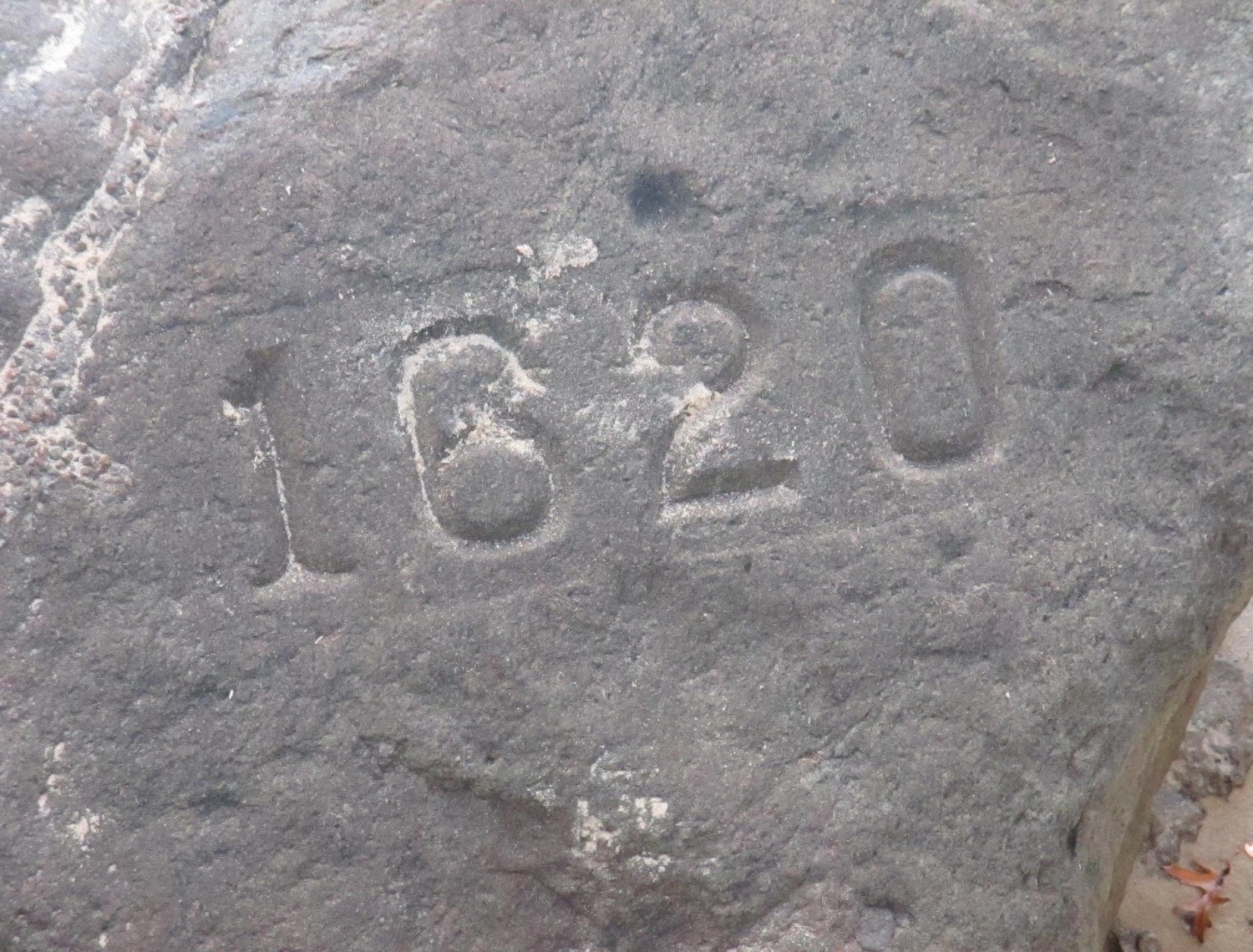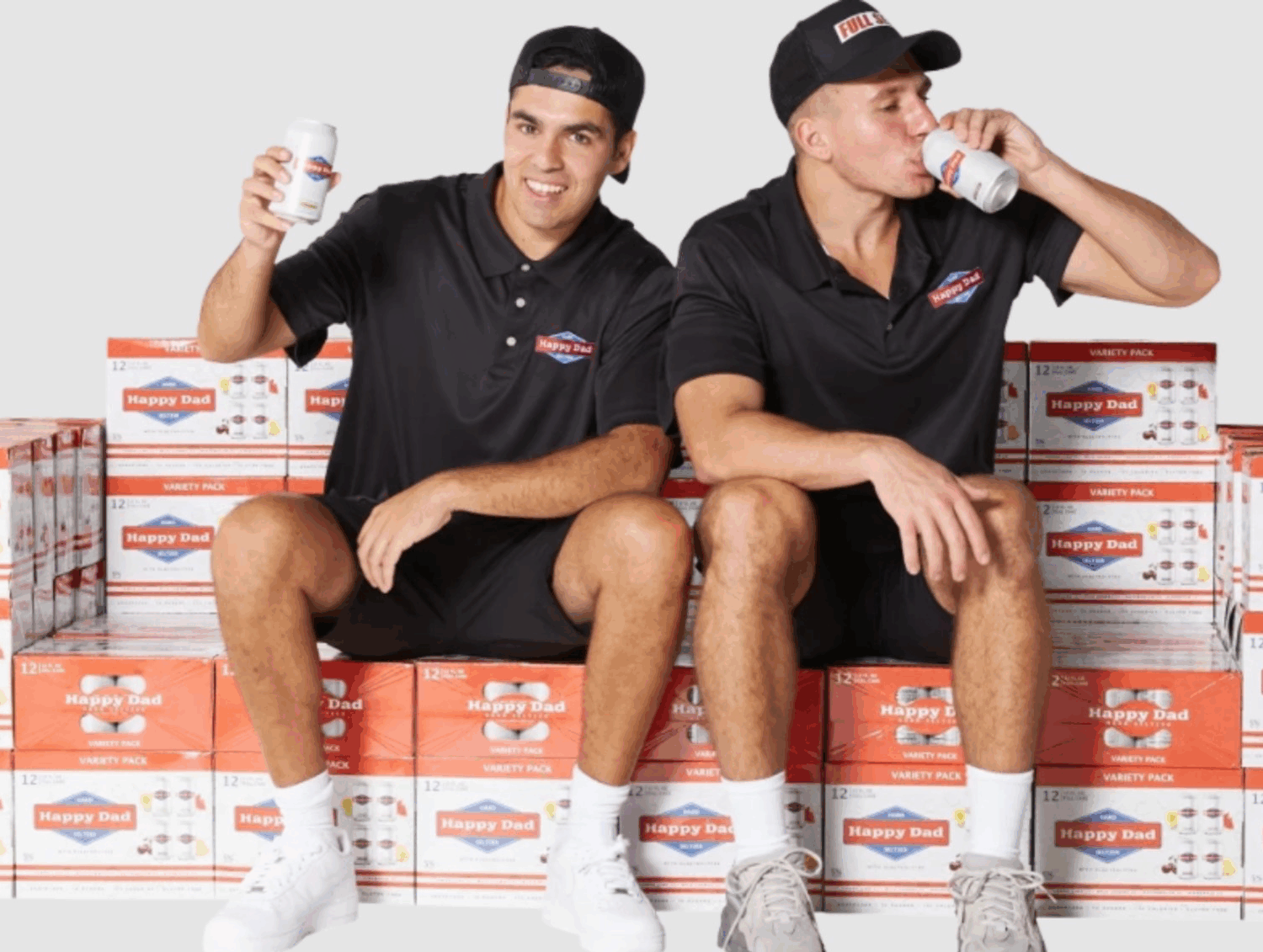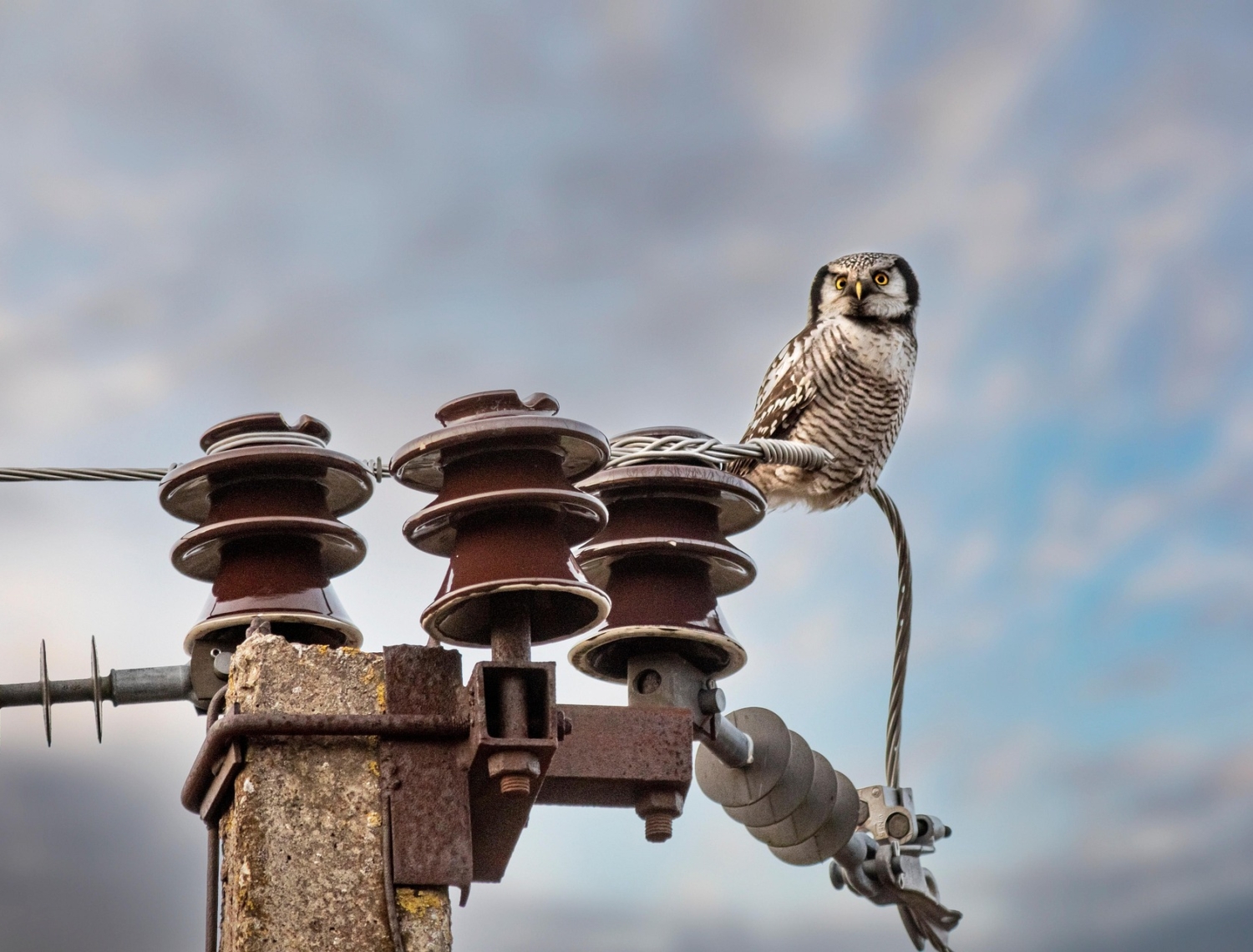Every Friday on the Sounds Profitable podcast, we release The Download, the most important business news from the world of podcasting. Check it out on our public feed or Supercast feed, and let us know what you think!
Bryan: First, what’s Were You Raised By Wolves? about?
Nick: Our show is all about manners and etiquette… but it’s definitely not boring! It’s fast-paced and highly relatable. Who among us hasn’t been the victim of an etiquette crime? Each episode, we tackle a mix of topics, from interrupting excessive talkers and setting boundaries with coworkers to how long you have to send a wedding gift and the “proper” way to eat Cheetos.
I always found it fascinating to see how different traditions approach the same question or problem. And, for me, that’s what etiquette is really all about. To paraphrase Miss Manners, one of my etiquette heros, “manners” are the universal principles and “etiquette” is the way a specific culture or society expresses those manners. So, for example, we all agree that we shouldn’t hit anyone when driving a car… that’s good manners. But the etiquette for how we achieve this is different around the world; in the United States, the etiquette is that we drive on the right. In Australia, the etiquette is that we drive on the left.
For my co-host, Leah Bonnema, she’s a brilliant comic and writer originally from a small town in Maine. She wants everyone to feel good and often worries whether or not she did “the right thing” in various situations. She definitely brings a unique perspective to all the etiquette issues we talk about.
Bryan: Merchandise has always been a big part of all of our conversations, and one we both think that publishers need a better perspective on. So when did you start selling merchandise and what’s your approach been?
Nick: Our online store—shop.wyrbw.com—was fully developed and offered more than 20 products before our first episode was even recorded. The idea was that having a fully-formed e-commerce site available on Day One would make our show feel more legitimate and established (even though it was all brand new). Our first merchandise sale (to someone who wasn’t someone we already knew) came 24 days after our show premiered.
In the beginning, we offered all the standard podcast favorites: print-on-demand mugs, t-shirts, and stickers. We also launched with baby bibs and baby onsies, which are particularly adorable given the name of our show! Everything includes our very distinctive typography and signature shade of red.
For us, the point of our merchandise is all about getting our name out there…there’s definitely a benefit from having someone walk around Tokyo with one of our tote bags over their shoulder.
And I also know from personal experience with my own WYRBW tote bag that people just stop you on the street and ask what Were You Raised By Wolves? is, which hopefully translates into people looking us up and downloading an episode to try. Multiply this by the number of products we’ve sold and the impact of having branded merchandise out in the world can get pretty notable.
We also encourage everyone who buys something from us to post a photo of themselves with it on social media and tag us. (We put an explicit request for this on the receipt that goes in every shipment.) It’s an effective, natural way to have our audience help share us with their friends and family, which also hopefully translates into new listeners. You can see an example in the most recent story on our Instagram page.
This past holiday season, a lot of people gifted WYRBW items to friends and family and there were lots of videos where someone was opening up their WYRBW gift. There is so much joy in these videos and they’re truly delightful to see.
Bryan: All of this is fantastic for general merchandise, but you hit on something completely unique: a collaborative line of stationery with a major brand. Can you tell us a bit about that story?
Nick: One of the recurring themes in the show is the importance of sending handwritten thank you notes. (Every episode closes with us thanking our listeners for tuning in and saying that we’d send them a hand-written thank you note if we could.) So, the idea of an etiquette podcast launching a line of social stationery just made sense.
The world of custom stationery is vast, as anyone who’s priced out a box of 100 custom business cards online can attest. But the world of high-end stationery is very niche…there are only a handful of companies in the world that really offer the “good” stuff. I’m talking hand-painted borders, copper engraving plates, luxurious 6-ply cotton papers. Real artisanry and craftsmanship. And for us, if we were going to offer stationery to our audience, we really wanted it to be the good stuff.
So, I reached out to Dempsey & Carroll, which makes some of the best stationery in the world, and asked if they’d be interested in collaborating with us on some custom products. Within moments, their CEO responded and away we went! Even though they’re a 150 year old company and we’re a young podcast, we share a lot of the same values and DNA, so it was a really easy and natural fit. One of their recurring themes is “making traditions modern,” which is absolutely what we’re trying to do too.
Over the next few months, we worked together to figure out how we could best combine the essence of our two brands and ended up creating three products: beautiful sets of boxed cards, a collection of entirely bespoke cards (the sort where you get your own name engraved on each one), and the “No Excuses” box, which is definitely the product that’s the most “in brand” for our show; on our show, we hear a lot of excuses from people about why they never sent a thank you note for something. “I didn’t know how,” “I didn’t have cards,” “I didn’t have stamps,” “I didn’t have a pen.” So, the “No Excuses” box contains everything you need to actually send that note: we include the cards, we include the envelopes, there’s my writing tips, there are sample letter templates, there’s a pen to write with. We even include complimentary postage stamps!
Bryan: Podcasting really does lend itself to some amazing partnership opportunities. Sharing audiences, building collaborative brands. What impact did this partnership have on your show?
Nick: What’s been particularly wonderful about collaborating with Dempsey & Carroll is the fact we’re both introducing each other to our respective audiences; we get to be prominently featured to their real-world audience through their retail store and to their digital audience through their website and email newsletters. And we feature them to our listeners through our website, newsletter, and also in mid-roll ads within our show itself.
Specifically, these ads are dynamically inserted, host-read spots that are programmed both as regularly scheduled campaigns throughout the year (the way we would schedule any other advertiser) and are also set up as self-promos that can just run at other times whenever there’s an open spot. (We use Megaphone and they have a way to program ads both ways.)
Notably, on the day Dempsey & Carroll sent out the first email newsletter announcing our collaboration, we saw a 16% increase in podcast downloads above what would have been expected for that day. And we still see a bump whenever they mention us in any of their communications, which is regularly. They’re also seeing a similar bump on their side whenever one of our campaigns runs too.
Bryan: What’s your advice for podcasters looking to give this strategy a shot? Where do they start?
Nick: For us, stationery has worked well because it’s very “us.” So, we’d definitely recommend figuring out what sort of merchandise is very “you.” Here are some ideas! If your show is about…
- True Crime: Water testing kits for arsenic that come wrapped in lace doilies
- Wine podcast: A carpet cleaning kit for those difficult pinot noir stains
- Parenting: Mini-battery-powered vacuum to get those hard-to-reach Cheerios out from between the seats in your car
- Real Estate: Keychains, of course
- Movie Reviews: Artisanal sea salts to put on popcorn
Whatever it is, it should feel like a natural extension of your show.
Bryan: Branding and brand association is incredibly important. What does a podcaster need to know before agreeing to this type of relationship?
Nick: Before working with others, it’s first a good idea to get real clarity on what your show’s values and goals are since it’s crucial to work with partners who are aligned with those. (We feel very lucky that our partners at Dempsey & Carroll have a similar passion for getting the word out about the importance of hand-written correspondence, so our goals are identical.)
One way to figure out what your show’s core values are is to answer the question: What’s the main thing you want your listeners to take away from every one of your episodes? Then make sure that whomever you choose to work with can help you achieve this thing, whatever it is.
Bryan: Thanks for chatting with me today, Nick.
Nick: You’re quite welcome, Bryan. Thanks for all you do to support the business-side of podcasting!
New Sponsors
Sounds Profitable exists thanks to the continued support of our amazing sponsors. Each sponsor receives one hour of consulting per month as a way to say thanks.
- The Podcast Exchange (TPX) identifies premium Canadian advertising opportunities by targeting the Canadian segment of the global podcast audience.
- Magellan AI is the platform built to help brands, agencies and publishers succeed in the rapidly changing world of podcast advertising. We help brands scale their ad spend faster and more efficiently and help publishers be better informed about who’s buying podcast advertising.
You’ll notice below that the Magellan AI team is now providing our Market Insights in 2022, while the ThoughtLeaders team is diving deeper into what makes a good advertising relationship.
Want to learn more about sponsorship? Hit reply!
Rel’s Recs
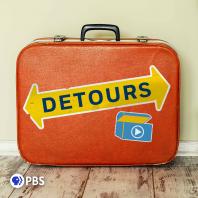
Arielle Nissenblatt of Earbuds Podcast Collective this week has chosen Detours, from WGBH Educational Foundation, hosted by PRX and measured by Podtrac.
I discovered Detours on the homepage of Castbox. I’ve been really into cover art lately and was initially drawn in by the suitcase depiction. I don’t have such a strong connection to the TV show version of Antiques Roadshow but this podcast is such a joy. Listeners get a behind the scenes account of popular episodes of the show, appraisal mistakes, and more. It’s part history, part social science, and all-around a delight.
Market Insights with Magellan AI
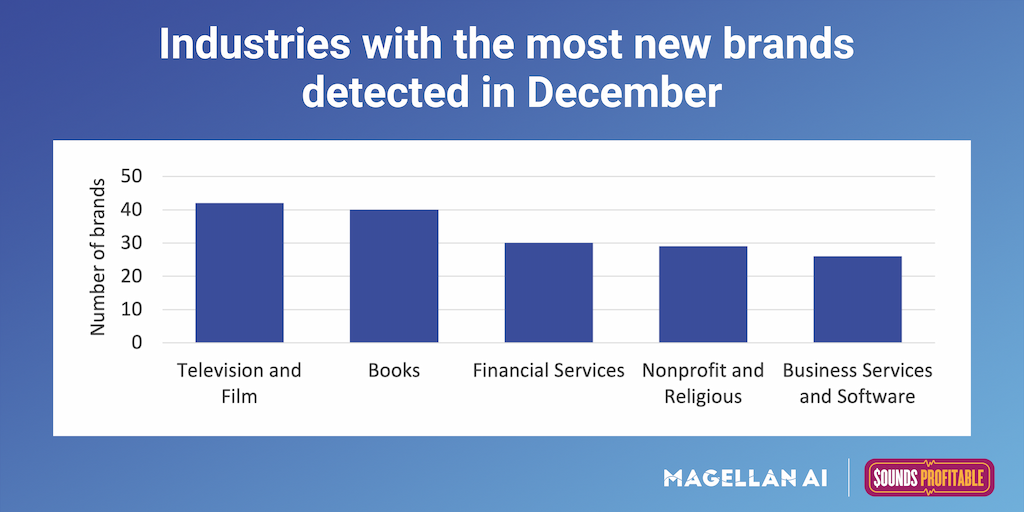
The number of new brands running their first podcast ad was more than 500 in every month of 2021. In December, Magellan AI detected a total of 669 new brands across a wide range of industries and these were the top 5 industries represented. Join us on January 20th at 11AM ET for a deeper look at the trends across advertisers, industries, and creative from December.
Anatomy of an Ad with ThoughtLeaders
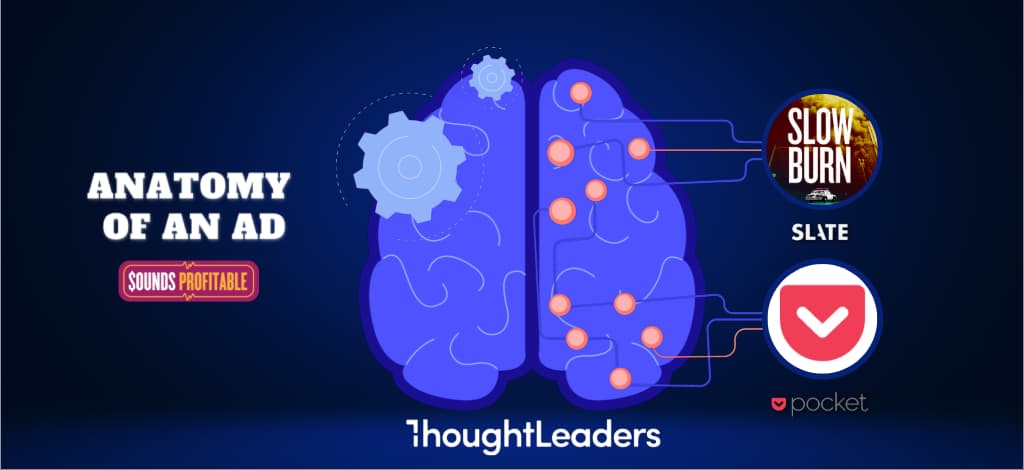
What makes a good podcast ad? You know it when you hear it, sure. But is there more to it? We’ve teamed up with ThoughtLeaders to break down what works, what doesn’t, and what it takes to make great ads. This week they’ve focused on Slow Burn‘s ad for Pocket. It gets full marks in a lot of areas, but has some room for improvement. Check out the analysis by ThoughtLeaders and see if you agree.

